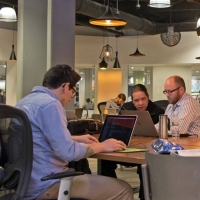To provide the best experiences, we use technologies like cookies to store and/or access device information. Consenting to these technologies will allow us to process data such as browsing behaviour or unique IDs on this site. Not consenting or withdrawing consent, may adversely affect certain features and functions.
The technical storage or access is strictly necessary for the legitimate purpose of enabling the use of a specific service explicitly requested by the subscriber or user, or for the sole purpose of carrying out the transmission of a communication over an electronic communications network.
The technical storage or access is necessary for the legitimate purpose of storing preferences that are not requested by the subscriber or user.
The technical storage or access that is used exclusively for statistical purposes.
The technical storage or access that is used exclusively for anonymous statistical purposes. Without a subpoena, voluntary compliance on the part of your Internet Service Provider, or additional records from a third party, information stored or retrieved for this purpose alone cannot usually be used to identify you.
The technical storage or access is required to create user profiles to send advertising, or to track the user on a website or across several websites for similar marketing purposes.
 A new CIPD survey of business leaders claims there is a significant mismatch between the scale of the challenge that workplace issues currently pose to businesses and how often workforce issues and people data are discussed by senior leaders. In response, the CIPD is warning that organisations are unlikely to perform well in the long term unless decisions taken at a board and executive management level are informed by an in-depth and evidence-based understanding of the value and risk their workforce poses. (more…)
A new CIPD survey of business leaders claims there is a significant mismatch between the scale of the challenge that workplace issues currently pose to businesses and how often workforce issues and people data are discussed by senior leaders. In response, the CIPD is warning that organisations are unlikely to perform well in the long term unless decisions taken at a board and executive management level are informed by an in-depth and evidence-based understanding of the value and risk their workforce poses. (more…)



































December 22, 2022
How businesses can support employee wellbeing over a difficult festive period
by Louise Aston • Comment, Wellbeing